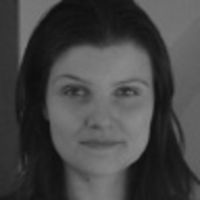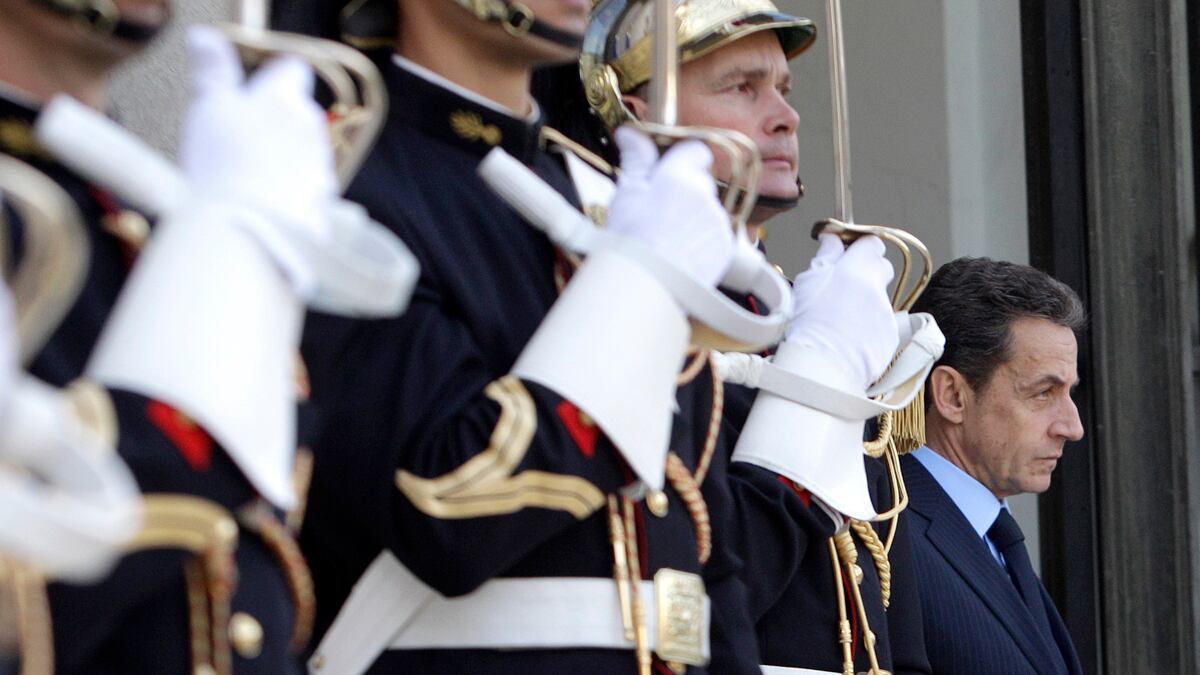Less than a year ago, François Hollande scored a lowly 3 percent against a smattering of more popular rivals, including Dominique Strauss-Kahn, in a poll asking French people to name who they would like to see designated the French Socialist Party's candidate in 2012. But Sunday night, Hollande, 57, won the primary contest hands down. The social-democrat now becomes the principal opponent to President Nicolas Sarkozy's reelection bid next spring.
It took some savvy campaigning, a bit of luck, and ultra-favorite Dominique Strauss-Kahn's nine career-quashing minutes in a New York hotel room to do it. But with 56.6 percent of an open vote that drew nearly 3 million voters, Hollande decisively beat party chief Martine Aubry (who received 43.4 percent of the vote) in Sunday's second-round runoff. (As it happens, Ségolène Royal, Hollande's former romantic partner and the mother of his four children, was the 2007 Socialist nominee, crushed in a long ferocious fight against Sarkozy's well-oiled campaign machine.) Indeed, Hollande's win Sunday night is little more than a drumroll before a much tougher battle to come.
In the end, the Socialist primary was, against stacked odds, a surprising, virtually flawless success. The winning candidate needed a clear result to dissuade dissent (and the cries of fraud and threats of legal action that marred a 2008 party-leadership vote), but not so clear as to embarrass the loser. And the party that all but abandoned its nominee, Ségolène Royal, to her own (insufficient) devices in 2007 needed a quick show of unity behind its new 2012 candidate. Sunday night, Aubry conceded quickly, throwing her weight as party chief behind Hollande as soon as partial results made her defeat obvious. That allowed Hollande and the defeated candidates to appear together on the party headquarters' steps, Hollande and Aubry smiling and clasping hands in a raised V like champions, stage-managed for the cameras in primetime. For a party that for years struggled to manage its egos, and embarrassed its supporters, Sunday's performance counts as remarkable.

While observers expected the Socialist primary to tear apart left-wingers, many felt the exercise had, in fact, destabilized the right. The Socialist Party, after years of egregious disarray, threaded through the raindrops (in the French parlance), avoiding missteps. The TV debates, four including last week's final round between Aubry and Hollande, were civil. There was just enough verbal sparring to make the fight feel authentic. Voter turnout was impressive, and even stronger for the second round. And for once Socialists seemed able to put personal vendettas aside for the cause. Fourth-place finisher Royal's endorsement last week of Hollande—the two separated officially in 2007 after more than 25 years together, and keep cool relations—was unexpected and deemed “classy” by opponents. The party is planning another show of unity next Saturday, when Hollande will be invested officially at a party convention.
But the real battle starts now. Sarkozy's approval ratings have been very low, hovering in the low 30s, for years. And Hollande has been crushing him in early polling for April's first round of the presidential election. But no one disputes Sarkozy's political chops. He is a talented, merciless campaigner. In recent weeks, Sarkozy's right-wingers seemed lost in their talking points, downplaying their opponents' primary and predicting mayhem that never materialized. But from Sunday night, Hollande's victory finally gave them a clear target.
In some ways, Hollande presents a tougher challenge for Sarkozy than Aubry would have. In his speech Sunday night on the party steps, he declared the right and far right his only opponents, thereby challenging Sarkozy for the centrist voters often shrugged off by self-indulgent Socialist purists. On the other hand, Hollande will have to take care not to lose his party's left flank to hardliners, the communist and Trotskyite parties. He will have learned from the 2002 presidential election, a disaster for the Socialists he led at the time as party chief, when the first-round vote was split between so many leftist candidates that Socialist Prime Minister Lionel Jospin was beaten by far-right rabble-rouser Jean-Marie Le Pen and never made it to the runoff.
Right-wing opponents won't let Hollande forget that as head of the Socialist Party from 1997 to 2008, he strove to make everyone happy, letting different leftist currents coexist instead of making tough decisions on a clear, modern party line. During the primary campaign, Aubry accused Hollande of incarnating a “gauche molle,” a soft left, the sort that bleeds into the center; Sarkozy's crowd has picked up the same epithet for Hollande, but to mean something quite different, a softness that can't choose between shades of red through a mishmash of disparate leftist hecklers. Between unity and clarity, the new Socialist Party nominee faces a real balancing act.
Another weakness Sarkozy's campaign is sure to stress at every opportunity is Hollande's relative lack of experience, an argument he'd have had more trouble wielding against Aubry. Before winning the presidency, Sarkozy had held prestigious government posts as interior and finance minister. Hollande, meanwhile, has never been a government minister. But he is a veteran of the backrooms of power. At 26, in 1981, he was an economic adviser in Socialist President François Mitterrand's Elysée Palace. In Hollande's charismatic speeches, some hear echoes of his mentor, Mitterrand. And Hollande's 11 years as head of the Socialist Party included five years working closely with Socialist Prime Minister Jospin, another political mentor.
Like Sarkozy, Hollande has been contesting elections since his 20s. He is a member of Parliament and holds local offices deep in central France, giving him outside-the-beltway credibility that Sarkozy has never quite mustered. If there is a political animal in the Socialist Party who can rival Sarkozy's masterful political savvy, it may well be Hollande. And some, at least, feel his unusual path to the nomination won't hurt him in this climate. In a front-page editorial Monday morning, the tabloid daily France Soir argued that Hollande's government inexperience may actually prove “a decisive advantage in a country that wants the new and that no longer believes in the old political recipes,” citing Barack Obama and Tony Blair as men who lacked the résumé prerequisites but won office regardless.
The unofficial campaign starts today. And while Sarkozy (who won't officially declare his candidacy for months) seems to have gone out of his way to stress his lack of interest in the Socialist primaries, his UMP party will hold a convention tomorrow expressly to pick apart the Socialists' exercise. And the president, who has in recent months made himself scarce in one of his regular attempts to appear more presidential, will make a rare television appearance next Monday, which is seen as a veiled counterattack. Hollande, too, will try making himself scarce, to guard against overexposure too soon. He is planning to travel to meet with foreign luminaries, likely starting with a quick trip to Madrid on Tuesday. French elections aren't won on foreign policy, but a French candidate must cultivate international bona fides to start looking like a statesman. This is a particular challenge for Hollande, as Sarkozy, as it happens, will be hosting G20 leaders in less than three weeks at a summit in Cannes.
The Socialist primary could have made the race a comedy or a horror show. Instead, it looks as if France is in for six months of entertaining suspense.






